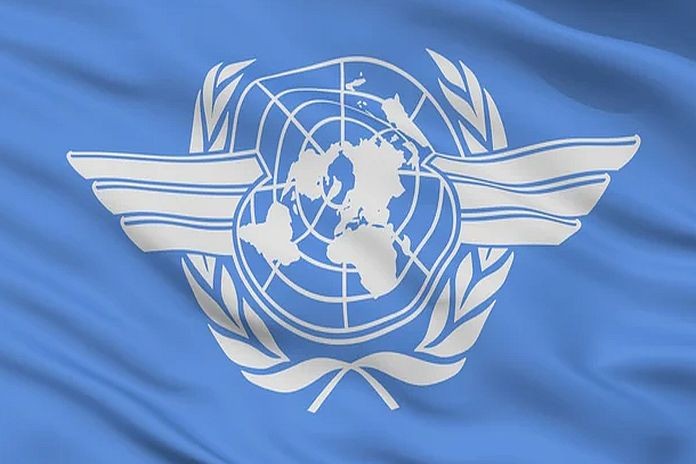MONTREAL, Canada – The International Air Transport Association (IATA) urges the 41st Assembly of the International Civil Aviation Organization (ICAO) to address top industry issues, including:
- Agreeing a Long-term Aspirational Goal (LTAG) for the decarbonization of international aviation in line with the aviation industry’s commitment to achieve net zero CO2 emissions by 2050
- Strengthening the landmark Carbon Offsetting and Reduction Scheme for International Aviation (CORSIA) as the single economic measure used by governments to manage aviation’s carbon footprint
- Implementing lessons learned from the economically and socially painful destruction of global connectivity that resulted from government attempts to control the spread of COVID-19
“The industry’s expectations for the 41st ICAO Assembly are ambitious but realistic given the challenges that we face. For example, governments must learn the lessons of COVID-19 so that the next pandemic does not result in closed borders bringing social and economic hardship. We also need governments to support the industry’s commitment to net zero carbon emissions by 2050 with their own commitment and corresponding policy measures on decarbonization. The right decisions by governments can accelerate the recovery from COVID-19 and strengthen the foundations for aviation’s decarbonization,” said Willie Walsh, IATA’s director-general.
IATA has submitted or sponsored over 20 papers on the Assembly’s agenda covering key policy and regulatory areas, including the following:
Sustainability
Airlines are committed to net zero carbon emissions by 2050. To support this commitment, IATA asks governments to adopt a LTAG of equal ambition that can guide consistent policymaking globally.
Furthermore, IATA urges governments to strengthen CORSIA as the single global economic measure to manage aviation’s international emissions. This means avoiding new taxes or emissions pricing schemes; and eliminating the plethora of duplicative measures that has evolved in recent years.
As Sustainable Aviation Fuel (SAF) is at the core of aviation’s energy transition and is expected to deliver some 65% of carbon mitigation by 2050, IATA calls on governments for coordinated policy measures to incentivize production. IATA is also calling for the establishment of a global “book and claim “system to enable the most efficient uptake of SAF by airlines.
Lessons learned from COVID-19
IATA calls on governments to be better prepared for future health emergencies and to avoid the fragmented response to COVID-19. Where COVID-19 measures are still in place, these must be reviewed considering lessons learned during COVID-19 and evaluated against global best practices.
The challenge is to review the ICAO CART recommendations, which supported the restoration of global connectivity, based on deep scientific knowledge and understanding built-up during the COVID-19 pandemic. This should enable a pandemic preparedness framework that avoids border closures with an approach featuring more proportionate and transparent risk management measures, common standards for health credentials, and better communication – including a common platform for sharing data on measures implemented by governments.
Strengthened cooperation and dialogue are needed at global, regional and national levels. IATA is calling for leadership from ICAO and the World Health Organization (WHO) including a central role for the CAPSCA framework based on an ongoing and monitored work program. This should lead to a crisis response toolkit which can be activated as required and is inclusive of health authorities and industry stakeholders.
People and talent
IATA calls for action on a number of issues relating to travelers and those who work in the air transport industry. Specifically:
- States should agree a global framework for how air transport implements its obligation under the UN Convention on the Rights of People with Disabilities. Regulatory consistency will help airlines and airports identify barriers to accessibility and meet the needs of travelers with disabilities with predictable services and processes.
- Universal ratification of Montreal Protocol 2014 (MP 14) is needed to provide effective disincentives for unruly behavior globally. While MP14 is in effect, only 38 states have ratified it.
- An examination of current restrictions on upper age limits for pilots is needed. This should consider new technology and emerging science. Adjusting this barrier to employment could help ensure the pilot talent needed to support future growth.
- IATA supports global initiatives to address gender imbalances in the aviation industry and encourages all aviation stakeholders to join its 25by2025 initiative.
Safety, security and operations
Highlights in this area include:
- IATA supports an obligation for states to consider aviation safety issues and consult industry experts when enabling new services such as 5G.
- IATA calls for states to support faster standard setting practices at ICAO and a phased approach to the implementation of ICAO Standards and Recommended Practices (SARPs). This will help SARPs to keep pace with developments in technology while avoiding the confusion created when there are delays due to the complexities of testing, certification and supply chain challenges.
Data: A patchwork of laws has evolved globally for personal data collection, use, transmission and retention. These can be contradictory when airlines operate international services. IATA calls on governments to work through ICAO to bring consistency and predictability to data laws applicable to international air transport.
Global standards and implementation
“Global standards are at the core of a safe, efficient, and sustainable air transport industry. This ICAO Assembly has enormous opportunities to advance aviation’s decarbonization, prepare the industry for the next pandemic, advance gender diversity, improve accessible air travel and enable standard setting to keep pace with technology. We look forward to states rising to these and other challenges before the Assembly,” said Walsh.
“Agreement, however, is only half the solution. Decisions made at the Assembly need to be implemented. The fact that we have a multitude of environment taxes when CORSIA was agreed to be the single global economic measure to manage international emissions illustrates the importance of effective implementation,” said Walsh.
- Access Industry Outlook presentation by IATA’s Director General (pdf)
- View Media Briefing video recording (YouTube)
- Full transcript of Willie Walsh’s media briefing






